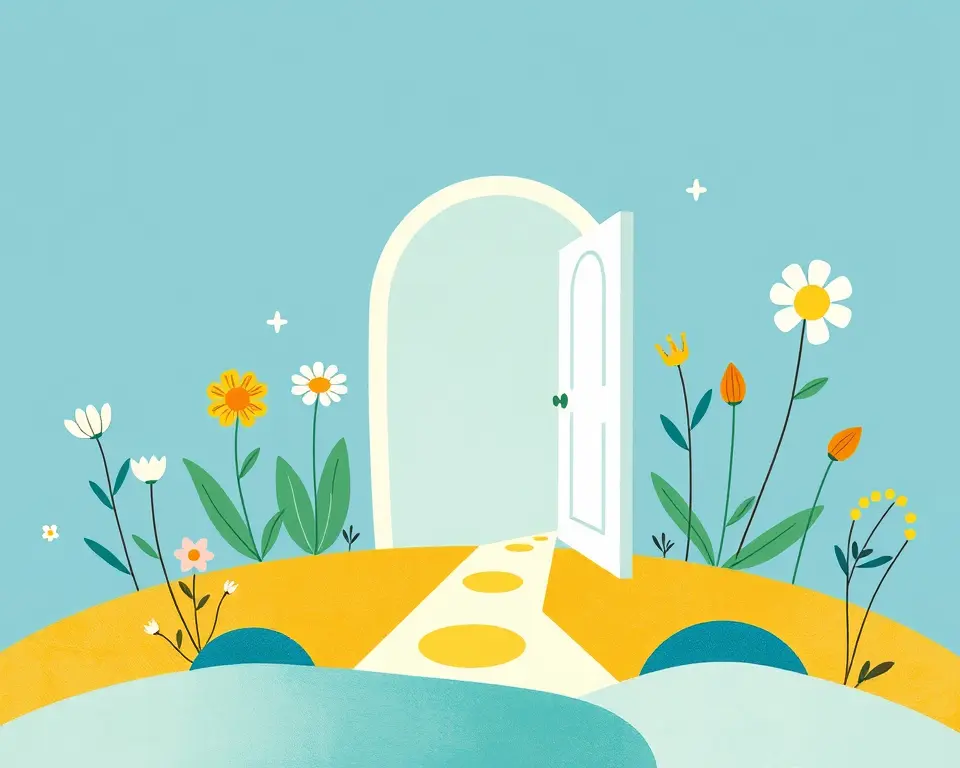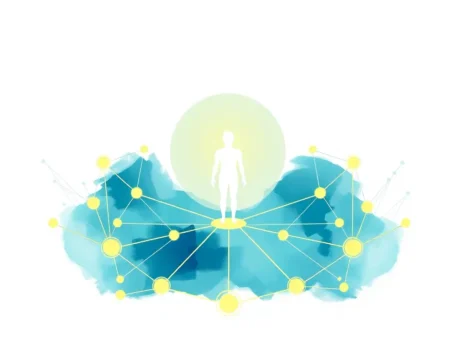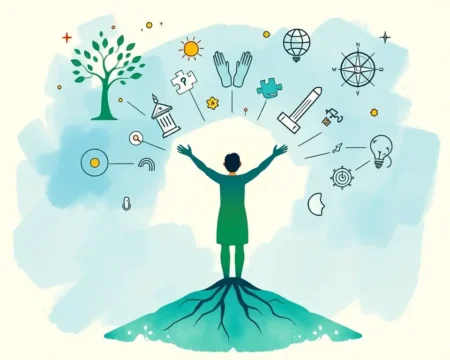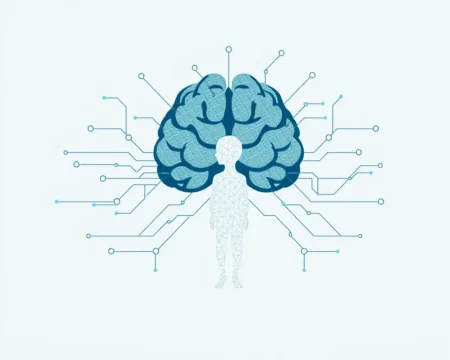In today’s fast-paced world, prioritizing mental health is more important than ever. Recognizing the increasing need for accessible and affordable mental health resources, many organizations are launching free online self-help guides. These resources provide valuable information, tools, and strategies to help individuals manage their mental well-being from the comfort of their own homes. This article explores the benefits, effectiveness, and availability of these free online self-help guides, offering a comprehensive overview for those seeking support.
Why Online Self-Help Guides?
Online self-help guides have emerged as a valuable tool in addressing the growing need for mental health support. They offer numerous advantages, making them an appealing option for many individuals:
- Accessibility: Online guides are available 24/7, allowing individuals to access support whenever and wherever they need it.
- Affordability: These resources are typically free, removing financial barriers to mental health support.
- Convenience: Users can work through the guides at their own pace and on their own schedule, fitting them into their busy lives.
- Anonymity: Online resources can provide a sense of privacy and anonymity, which may encourage individuals who are hesitant to seek traditional therapy to explore self-help options.
What Topics Do These Guides Cover?
Free online self-help guides cover a wide range of mental health topics, catering to diverse needs and concerns. Some common areas include:
- Anxiety: Techniques for managing worry, panic attacks, and social anxiety.
- Depression: Strategies for coping with low mood, loss of interest, and feelings of hopelessness.
- Stress Management: Methods for reducing stress, improving relaxation, and building resilience.
- Grief and Loss: Guidance on navigating the grieving process and coping with bereavement.
- Trauma: Resources for understanding and processing traumatic experiences.
- Addiction: Information and support for overcoming substance abuse and addictive behaviors.
- Self-Esteem: Exercises and techniques for building self-confidence and self-worth.
- Relationships: Tips for improving communication, resolving conflict, and fostering healthy relationships.
Effective Techniques Used in Self-Help Guides
Many online self-help guides utilize evidence-based techniques, such as Cognitive Behavioral Therapy (CBT), to provide users with practical tools for managing their mental health.
Cognitive Behavioral Therapy (CBT)
CBT is a widely used therapeutic approach that focuses on identifying and changing negative thought patterns and behaviors. CBT-based self-help guides often include:
- Thought Records: Worksheets for tracking and challenging negative thoughts.
- Behavioral Experiments: Activities for testing the validity of negative beliefs.
- Relaxation Techniques: Exercises for reducing anxiety and promoting relaxation.
- Problem-Solving Strategies: Steps for identifying and resolving problems effectively.
Mindfulness-Based Techniques
Mindfulness involves paying attention to the present moment without judgment. Mindfulness-based self-help guides may include:
- Meditation Exercises: Guided meditations for cultivating awareness and reducing stress.
- Breathing Exercises: Techniques for calming the mind and body.
- Body Scan Meditations: Practices for increasing awareness of physical sensations.
Other Helpful Techniques
- Goal Setting: Strategies for setting achievable goals and staying motivated.
- Time Management: Tips for organizing time and reducing feelings of being overwhelmed.
- Communication Skills: Techniques for assertive communication and conflict resolution.
- Self-Care Strategies: Ideas for incorporating self-care activities into daily routines.
Where to Find Free Online Self-Help Guides
Numerous organizations offer free online self-help guides for mental health. Here are some reputable resources:
- HelpGuide.org: This website provides evidence-based resources on a wide range of mental health topics, offering practical advice and strategies for improving well-being. HelpGuide.org is a non-profit dedicated to providing information and support.
- NHS inform: NHS inform offers a variety of mental health self-help guides that use cognitive behavioral therapy (CBT) for anxiety, bereavement, OCD, panic and social anxiety.
- Mind: This UK-based mental health charity offers a wealth of online resources, including self-help guides, blogs, and forums. Mind also provides information on mental health conditions, treatment options, and support services.
- Black Dog Institute: The Black Dog Institute provides online tools and mobile apps for mental health and wellbeing that have been developed and tested through research trials.
- Mental Health America (MHA): MHA offers a collection of mental health tools such as “31 Tips to Boost Your Mental Health”, and screening tools for a variety of mental health conditions.
- 7 Cups: 7 Cups provides free online therapy and emotional support through virtual chat with trained volunteer listeners.
- myCompass: myCompass is a free online tool that can help you identify unhelpful thoughts, feelings, and behaviors, and learn strategies to deal with them.
- Beyond Blue: Beyond Blue provides 24/7 support for anxiety, depression and suicide prevention.
- GETSELFHELP.co.uk: Getselfhelp.co.uk provides CBT self help and therapy resources, including worksheets and information sheets, plus videos and self-help mp3s.
- CNTW Self Help Guides: Cumbria, Northumberland, Tyne and Wear NHS Foundation Trust has written a series of self-help guides covering a wide range of topics such as depression, anxiety, and stress which offer users the opportunity to find out more about the causes of mental health issues and provide tools to work through feelings and emotions.
The Effectiveness of Online Self-Help Guides
Research suggests that online self-help guides can be effective in managing mild to moderate mental health issues. A meta-analysis published in PMC found that Internet-based self-help interventions were effective in reducing symptoms of anxiety, depression, and stress, as well as improving quality of life.
Another study in PMC found that guided self-help treatments are effective interventions for adults as well as young people, and equivalent to face-to-face individual treatment for adults with depression as well as psychiatric and somatic disorders.
Guided vs. Unguided Self-Help
The effectiveness of self-help guides can be enhanced when combined with guidance from a therapist or counselor. Guided self-help involves working through a self-help program with the support of a mental health professional, who provides feedback, encouragement, and personalized advice. However, unguided self-help can still be beneficial for many individuals, particularly those with milder symptoms or those who prefer a more independent approach.
Limitations of Self-Help Guides
While online self-help guides offer numerous benefits, it’s important to recognize their limitations:
- Not a Substitute for Professional Therapy: Self-help guides are not intended to replace therapy with a qualified mental health professional. They may not be sufficient for individuals with severe or complex mental health conditions.
- Risk of Misinformation: The internet contains a vast amount of information, and not all of it is accurate or reliable. It’s important to use resources from reputable organizations and to be critical of the information you find online.
- Lack of Personalization: Self-help guides offer general advice and strategies, but they may not address the specific needs and circumstances of every individual.
- Requires Self-Discipline: To benefit from self-help guides, individuals need to be motivated and committed to working through the material.
When to Seek Professional Help
It’s important to seek professional help if you:
- Are experiencing severe or debilitating symptoms.
- Have thoughts of harming yourself or others.
- Have a history of mental illness.
- Are not improving with self-help strategies.
- Feel overwhelmed or unable to cope.
Combining Self-Help and Therapy
Self-help and therapy can be used together to create a comprehensive approach to mental health care. Many therapists encourage clients to use self-help techniques between sessions to reinforce progress and build coping skills.
Conclusion
Free online self-help guides are a valuable resource for individuals seeking to improve their mental health and well-being. They offer accessibility, affordability, and convenience, making them an appealing option for many. By utilizing evidence-based techniques and providing information on a wide range of mental health topics, these guides can empower individuals to take control of their mental health and live more fulfilling lives. However, it’s important to recognize the limitations of self-help and to seek professional help when needed.










